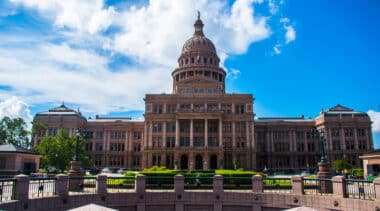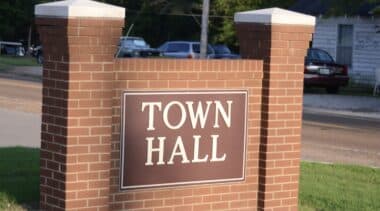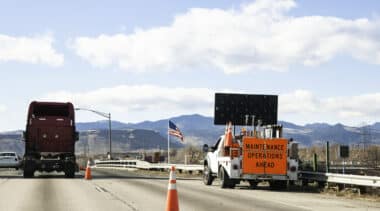Latest
-
How Telehealth Services Can Help Address Mental Health Issues and Police Reform Efforts
Individuals with untreated mental illness are 16 times more likely to be killed during a police encounter than those without mental illness.
-
Analysis of Texas Senate Bill 321
Senate Bill 321 could save the state as much as $15 billion in long term costs and ensure that new employees' retirement benefits are fully funded.
-
How Local Government Names Make It Difficult to Monitor Their Spending and Other Data
Taxpayers, lawmakers and researchers need a broadly accepted, reliable, and comprehensive way to identify local governments and their data.
-
How to Increase Public Pension Fund Investment in U.S. Infrastructure
Public pension systems are increasingly seeking reliable long-term investments in revenue-generating infrastructure, such as airports, seaports, and tolled roads and bridges.
-
Pension Reform Newsletter: Using Marijuana Revenue to Pay Pension Debt, Pension Reforms in Florida and North Dakota, and More
Plus, analysis on the factors that impact state-level pension reforms and how to better protect public workers from retirement risks.
-
Should Public Pension Funds Be Investing In Cryptocurrency?
It’s not wise for public pension funds and taxpayers to be exposed to such financial risk.
-
10 Reasons Why the FDA Should Not Ban Menthol Cigarettes
"Such a ban will trigger criminal penalties, which will disproportionately impact people of color, as well as prioritize criminalization over public health and harm reduction."
-
Biden Administration’s Civil Rights Review of I-45 Project In Houston Could Threaten Infrastructure Projects Everywhere
The Biden administration took the unusual step of pausing a Houston highway widening project by using a provision of the 1964 Civil Rights Act.
-
Rhode Island Should Focus on Tobacco Harm Reduction, Not E-Cigarette Flavor Bans
Legislation in Rhode Island would give smokers access to e-cigarettes as a tool to quit smoking while ensuring youth are prohibited from purchasing vaping products.
-
Private Equity Returns Stumbled in 2020, Hurting Public Pension Plans
Public pension systems should be concerned about private equity's high fees and potential to hurt asset performance.
-
How to Pay for Rebuilding and Modernizing America’s Aging Interstates
Congress has shown little interest in addressing the need to repair and modernize America’s most important highways.
-
Privatization and Government Reform Newsletter: Expanding Telehealth Access, Interstate Rest Area Commercialization, and More
Plus: Connecticut’s public infrastructure needs private sector help, Alaska DMV privatization proposal withdrawn, and more.
-
Congress Should Modernize Regulatory Authorities to Support Automated Vehicle Development
Automated vehicles have great potential to improve safety, mobility, and access for Americans.
-
The Alliance Model for EMS Lacks Competition, Oversight and Accountability
The alliance model for emergency medical services fails to harness the competition that's essential in making public-private partnerships valuable for taxpayers and governments.
-
The Challenges and Opportunities Ahead For U.S. Infrastructure
Why Congress and state governments have struggled to properly prioritize and pay for infrastructure projects and what can be done to change that.
-
To Repair Its Deficient Bridges, Pennsylvania Should Embrace Value-Added Tolling
PennDOT and public-private partnerships can fully address concerns about wasteful government spending, double taxation, and the fairness of tolling.
-
Aviation Policy News: Air Traffic Benefits From NextGen Are Far Below Expectations, New Airlines Keep Starting Up, and More
Plus: Space-based aircraft surveillance now worldwide, FAA progress on drone traffic management, and more.
-
Testimony: Funding and Financing New Transportation Investments in Michigan
Policymakers should focus on the value proposition when considering transportation investments.

















